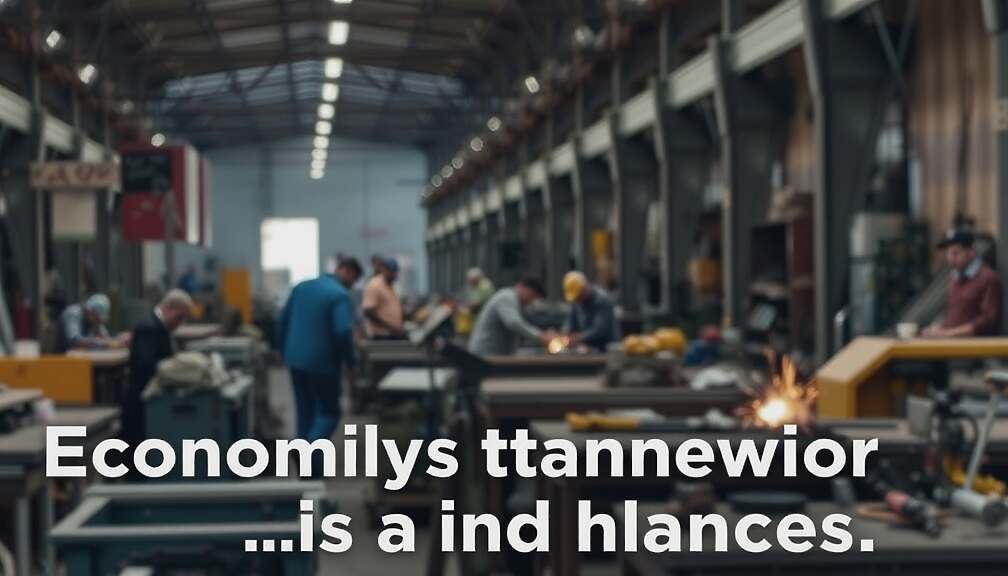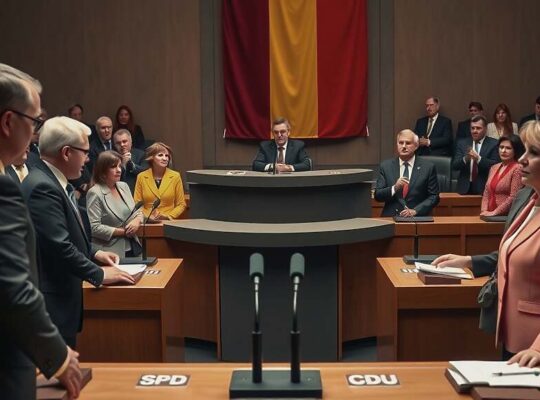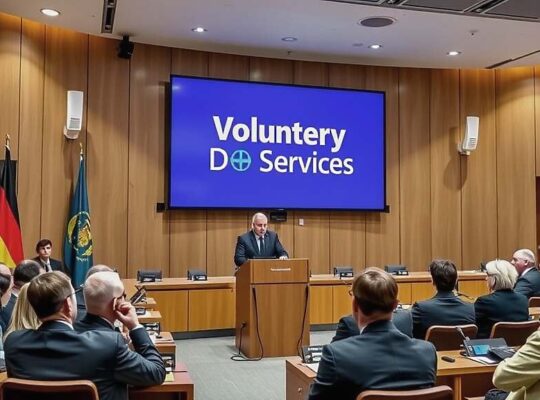Germany’s powerful metal and electrical industries’ employers’ association, Gesamtmetall, is increasingly portraying the Social Democratic Party (SPD) as a significant impediment to the nation’s economic recovery, escalating tensions within the governing coalition. In a scathing assessment released to the Neuen Osnabrücker Zeitung (NOZ), Gesamtmetall’s Managing Director, Oliver Zander, directly accused the SPD of acting as a “brake” on necessary economic and social reforms.
Zander argued that the slow pace of Germany’s “economic transformation” (Wirtschaftswende) is directly attributable to the SPD’s reluctance to implement impactful changes. He warned that without substantial improvements in the nation’s economic health, the government risks severe instability. He emphasized that continued economic stagnation, which he characterized as potentially the longest crisis since the Federal Republic’s founding, will ultimately undermine the government’s political survival. This stark warning places considerable pressure on the ruling coalition, particularly the Christian Democratic Union (CDU) and its Bavarian sister party, the CSU.
The employers’ group is particularly critical of the SPD’s position on welfare payments (Bürgergeld), pensions and healthcare, demanding more than superficial modifications to the social safety net. Zander stressed the urgency for the CDU/CSU to exert “more pressure” on their coalition partner to instigate genuine reforms. He criticized rising social security contributions, deeming them “unacceptable” and a threat to Germany’s competitiveness. He insists the SPD must acknowledge this and recognize the disconnect between payments and the value received. While emphasizing the importance of maintaining a robust social state and protecting citizens from life’s risks, he pointed to “excessive inefficiency” within the current system.
Beyond the immediate coalition dynamics, Zander addressed the ongoing debate within the CDU/CSU regarding maintaining a “firewall” against the far-right Alternative for Germany (AfD). He argued that the obsessive focus on safeguarding this firewall is a distraction from the real issue: a deeper analysis of the AfD’s program and its potential impact. He subtly pointed out that preserving the firewall necessitates a commitment to reform, asserting that it is inherently incompatible with resistance to change. This commentary subtly suggests that clinging to ideological purity risks legitimizing the AfD’s platform through inaction.












